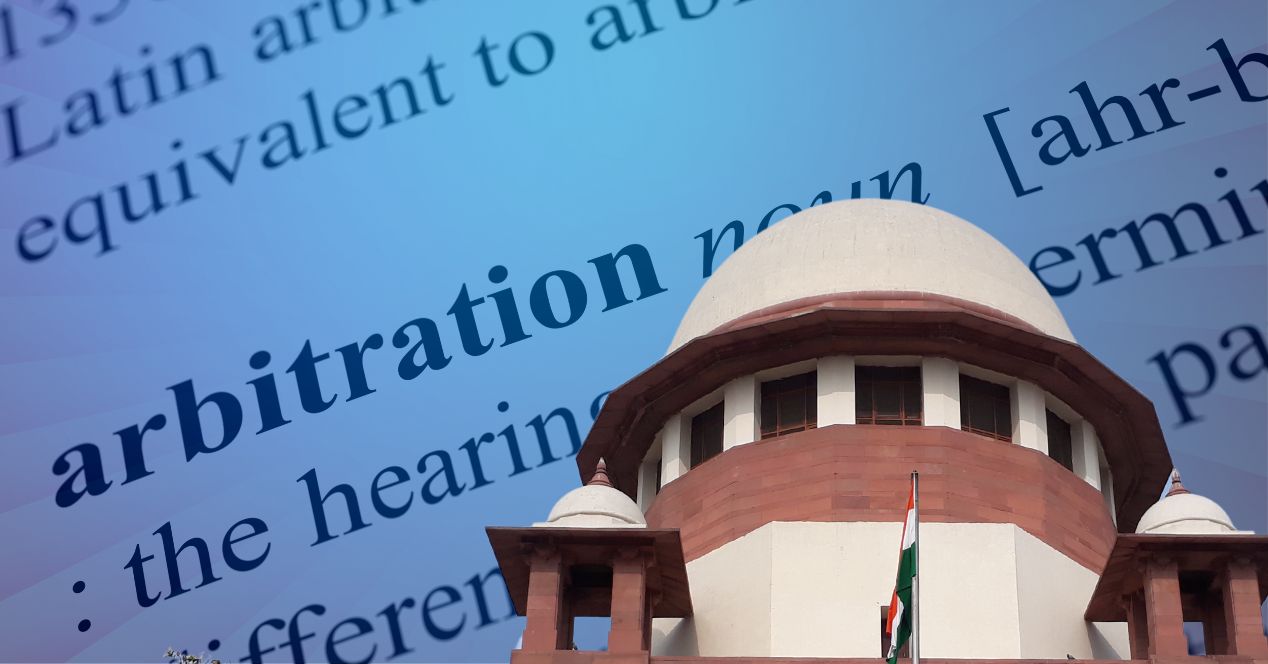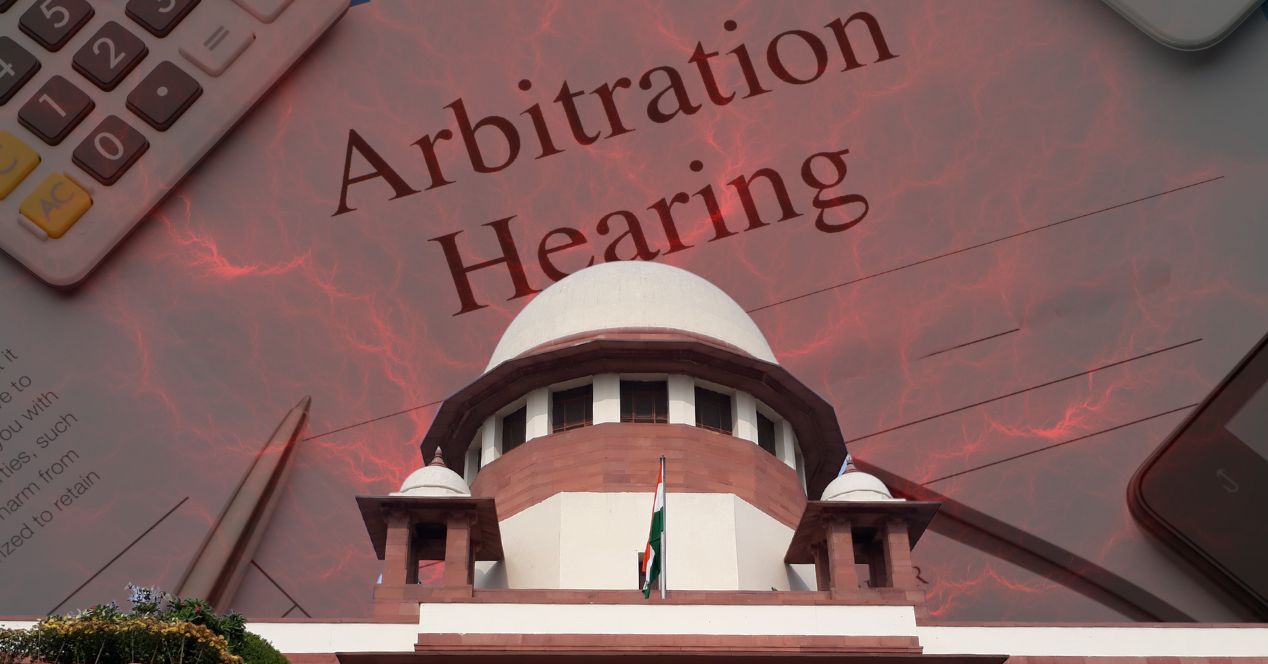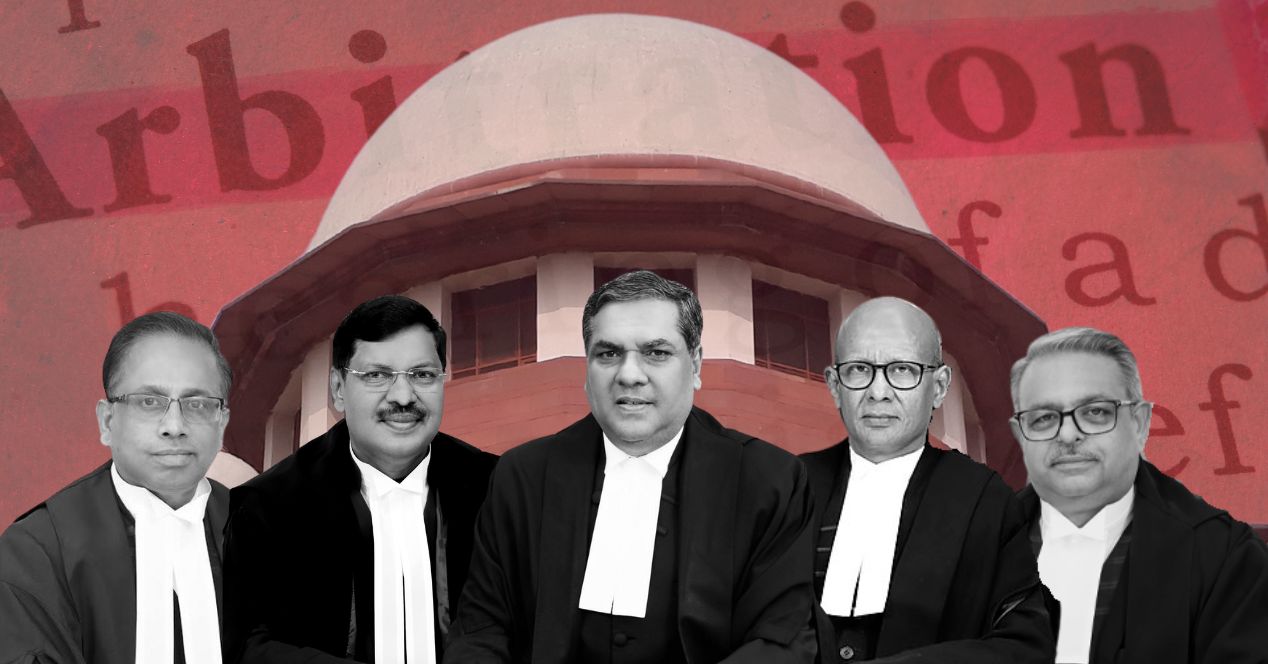SC holds there is “limited” power to modify an arbitral award in 4:1 majority
Court’s Power to Modify an Arbitral AwardJudges: Sanjiv Khanna CJI, B.R. Gavai CJI, P.V. Sanjay Kumar J, K.V. Viswanathan J, A.G. Masih J
Today, in a 4:1 majority, a five-judge Constitution Bench led by Chief Justice Sanjiv Khanna held that a court, in limited circumstances, can modify an arbitral award under Section 34 of the Arbitration Act, 1996. Section 34 allows courts to set aside an arbitral award on limited grounds such as patent illegality and conflict with public policy.
Justice K.V. Viswanathan dissented “against some points” from CJI Khanna’s majority opinion, holding that a Section 34 Court cannot modify, vary or change an award unless expressly authorised by law.
During the hearings in February, the Union government argued that the scheme of the 1996 Act did not permit the “modification” of an award. Courts could only set it aside in part or in full. The Union also submitted that the power to recognise a court’s power to modify an award vested only with Parliament by way of amendment to the Act. The Supreme Court could not exercise such power.
Respondents and intervenors had submitted that recognising courts’ power to modify an award will help expedite the arbitration process. Moreover, they argued that ‘modification’ was the smaller power, and was therefore subsumed under the larger power to ‘set aside’.
The Bench reserved judgement on 19 February, after three days of arguments.
Majority: Courts can modify an award under Article 142
CJI Khanna, reading the majority opinion, stated that the “limited” power to modify an award under Section 34 was available in the following circumstances:
- When the award is severable, by severing the invalid portion from the valid portion of the award.
- By correcting any clerical, computational or typographical errors which appear erroneous on the face of the record;
- Post-award interest can be modified in certain circumstances, which are detailed in the judgement, and
- By application of Article 142 of the Constitution, adding that it must be exercised with “great care and caution”.
Article 142 permits the Supreme Court to use its discretionary powers and pass any order necessary to secure “complete justice”. In the past, the provision has been used by the top court to modify awards, especially those seeking a variation of the interest awarded by the arbitral tribunal.
Justice Viswanathan: Power to set aside does not include the power to modify
At the outset, Justice Viswanathan elaborated on the difference between modification and severance. Modification, he said, involved varying, altering and changing. Severing, on the other hand, means to “separate and disjoint” a part of the award from the rest. He stated that there is unanimous agreement that an award can be severed under Section 34 within the rules of severability. However, the power to modify had to be tested on separate grounds.
During the hearings, respondent-intervenors had submitted that if the power to modify was not read into the power to “set aside” under Section 34, it would lead to absurd results. Justice Viswanathan rejected that argument, stating that it had “no merit”. He provided two reasons:
-
Section 43(4) provides that the period between the commencement of the arbitration and the court’s order setting aside an award will be excluded when calculating the limitation period for initiating fresh proceedings on the same dispute. This provision contemplates the recommencement of proceedings and precludes the argument that denying the court’s power to modify an award will cause hardship to parties looking for a recourse.
- By choosing arbitration, the parties agree that they have chosen an alternative path of dispute resolution and that their rights and duties will be governed by the Arbitration Act. Therefore, there is a “contractual ouster” of the normal judicial process.
Justice Viswanathan held that the power to modify cannot be read into the power to set aside. Reading such power within Section 34 would strike at the very “core and ethos” of the arbitration process.
He also disagreed with the majority on the usage of Article 142 to modify an award, holding that it would lead to “uncertainties”. Lastly, Justice Viswanathan held that the Court could not modify post-award interest under Section 34.




